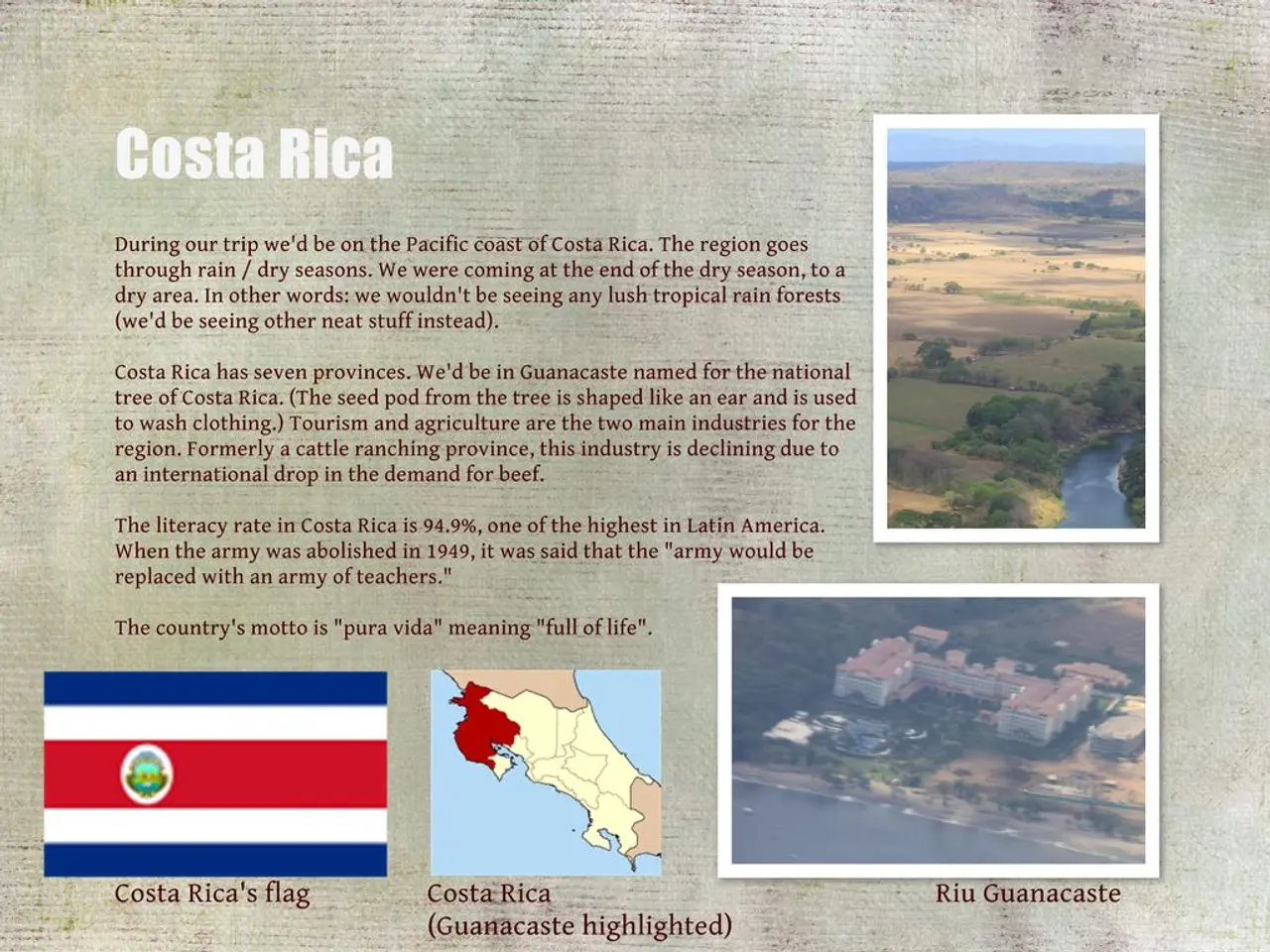Presidential re-elections in El Salvador receive unlimited authorization - Salvadoran leaders endorse indefinite repeats for head of state position
El Salvador Approves Unlimited Presidential Re-election for Nayib Bukele
El Salvador's Congress has approved a constitutional amendment that allows President Nayib Bukele to seek unlimited re-election, effectively removing previous term limits [1][2]. This move, which is considered certain to pass in a second vote, could potentially extend Bukele's time in power well beyond his current term.
The implications and reactions to this move are significant:
- Impact on democracy: The removal of term limits is widely seen as a threat to democratic norms and checks and balances. It may consolidate executive power and weaken institutional accountability in El Salvador [1][2].
- Political context: Bukele’s administration has enjoyed strong popular support, partly due to his tough stance on crime and economic initiatives. However, critics argue that unlimited re-election facilitates authoritarianism, undermining democratic competition and the separation of powers.
- Public and international reactions: While some supporters view the change as a way to maintain political stability and continue reforms, opposition groups and international observers have expressed concern over potential erosion of democracy and increased risk of autocratic rule.
Nayib Bukele, who has been in power since 2019, was re-elected last year with around 85 percent of the votes, despite a constitutional ban on re-election. The president's party, Nuevas Ideas, holds an absolute majority in El Salvador's parliament, allowing them to pass the constitutional amendment. The parliament has also extended the president's term from five years to six.
In the future, presidential, parliamentary, and municipal elections will be held simultaneously. The opposition deputy Marcela Villatoro of the Arena party criticized the changes, stating that "democracy has died." Only three opposition representatives voted against the constitutional amendment.
Bukele has taken a hard stance against gang crime in El Salvador, which has been in a state of exception since 2022, with six million inhabitants. The president referred to himself as the "coolest dictator in the world." Activists have denounced arbitrary arrests and serious human rights violations under Bukele's rule.
The changes to the constitution must still be confirmed in a second vote. If approved, it remains to be seen how this decision will shape El Salvador's political landscape in the long term.
[1] https://www.bbc.com/news/world-latin-america-61474530 [2] https://www.reuters.com/world/americas/el-salvador-lawmakers-approve-unlimited-re-election-bukele-2023-01-25/
- The extension of President Nayib Bukele's time in power, facilitated by the removal of term limits and the proposed extension of the agreement's validity period, could potentially influence politics in El Salvador, particularly in regard to war-and-conflicts and policy-and-legislation.
- This move, involving unlimited presidential re-election and changes in the constitution, has sparked debates about the impact on democracy, as critics argue it could lead to authoritarianism and weaken institutional accountability – issues that are of general news interest.








